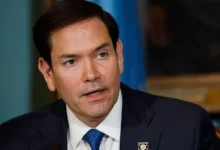Bill Clinton Criticises Netanyahu’s Approach to Iran

Former US President Bill Clinton has voiced sharp criticism of Israeli Prime Minister Benjamin Netanyahu’s long-standing hardline approach to Iran, warning that such policies risk dragging the region—and the United States—into continuous conflict that disproportionately harms civilians.
“Mr Netanyahu has long wanted to fight Iran, because that way he can stay in office forever and ever,” Clinton said in recent remarks.
“We’ve got to convince our friends in the Middle East that we’ll stand with them and try to protect them. But choosing undeclared wars in which the primary victims are civilians… is not a very good solution.”
Clinton’s comments come at a time of rising tensions across the Middle East, as Israel continues a military campaign that has seen repeated airstrikes in Syria and Lebanon, as well as reported covert operations inside Iran.
Netanyahu, citing the threat of Iran’s nuclear ambitions and its support for armed groups like Hezbollah and Hamas, has made regional confrontation a defining feature of his security doctrine.
Clinton, who served from 1993 to 2001, was the first US president to seriously attempt direct engagement with Iran after the 1979 Islamic Revolution.
His administration supported early confidence-building measures, even though Iran was still formally designated a sponsor of terrorism.
In his second term, Clinton authorised backchannel diplomacy and imposed targeted sanctions to pressure Tehran on its nuclear and missile programs, while publicly stating the need to avoid military confrontation.
“We do have to try to stop Iran from having a nuclear weapon—I tried that and we had some success,” Clinton said, referring to his administration’s efforts to isolate Iran while maintaining space for future negotiations.
However, he warned that such goals should not justify open-ended military action.
“We don’t have to have all this outright, constant killing of civilians who can’t defend themselves,” he added. “They just want a chance to live.”
His remarks carry particular weight as Netanyahu’s government faces growing international criticism over its military operations, especially in Gaza, where thousands of civilians have been killed or displaced.
Meanwhile, Iran’s suspected involvement in regional proxy warfare continues to complicate US diplomacy.
Clinton also appeared to aim his remarks at former President Donald Trump, who unilaterally withdrew from the 2015 Iran nuclear deal—formally known as the Joint Comprehensive Plan of Action (JCPOA)—brokered under President Barack Obama.
That withdrawal, followed by the reimposition of sanctions, led to the collapse of diplomatic efforts and a resumption of Iranian uranium enrichment, contributing to today’s heightened tensions.
“I hope President Trump will [help] defuse it,” Clinton said, adding that “anybody there” in leadership should work toward de-escalation.
His call for restraint comes as the US faces mounting pressure from regional allies to support Israeli military actions more forcefully, while also trying to prevent a broader war with Iran.
Analysts say Clinton’s remarks reflect a centrist realist view that emphasizes long-term stability over short-term retaliation.
His administration’s preference for sanctions, covert containment, and diplomacy contrasts with the military-first strategies embraced by both the Trump and Netanyahu governments.
Clinton’s warning comes amid growing domestic unease in the US over America’s role in Middle East conflicts, especially where there is little strategic clarity and high humanitarian costs.
With no clear endgame in sight, his comments serve as a reminder of a time when preventing war was considered as important as winning one.







